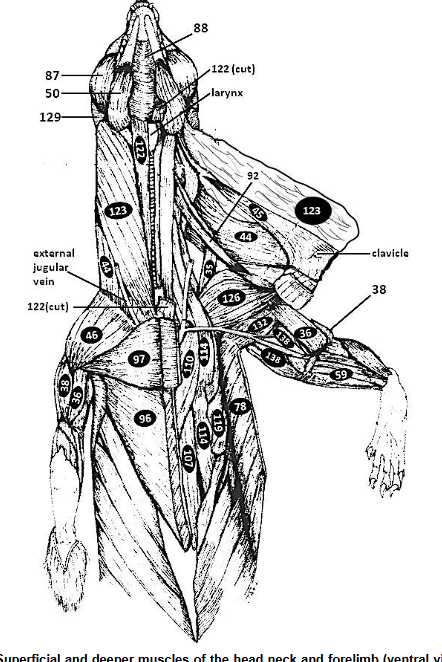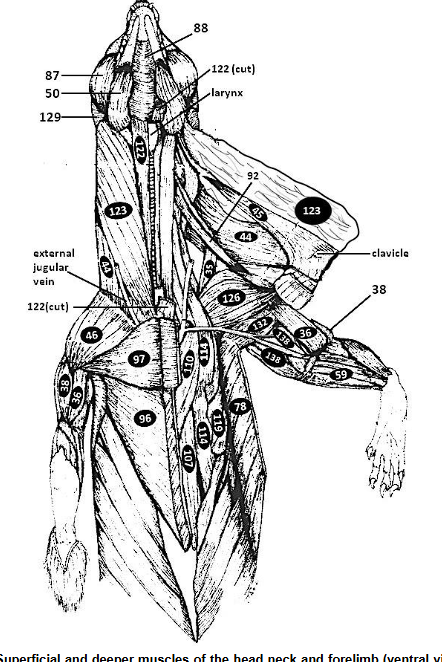Mammal bones and muscles
1/24
There's no tags or description
Looks like no tags are added yet.
Name | Mastery | Learn | Test | Matching | Spaced |
|---|
No study sessions yet.
25 Terms
Thorax, ending at the bottom of the ribs
Abdomen
Two trunk divisions of mammals
Brachium, antebrachium, Manus
Thigh, Shank, Pes
proximal to distal divisions of tetrapod forelimbs and hindlimbs
Foot pads, friction ridges (fingerprints)
Two homologous structures on tetrapod feet
Hair, Soles of feet, Rhinarium (bare patch around nose)
Mammary glands (not visible when not lactating except primates)
2 unique trait to mammals and where one isn’t found on the body
Sensory, secondarily insulating
hair primary function and secondary developed function
External auditory meatus
Pinna is the ear, the tissue directing sound in
AKA ear canal
Pinna morphology and function
Nictitating membrane
Third eyelid in many mammals like the mink drawn laterally across the eye
Parietal (55) forms dorsal quadrant of braincase
Sole remaining bone on skull roof
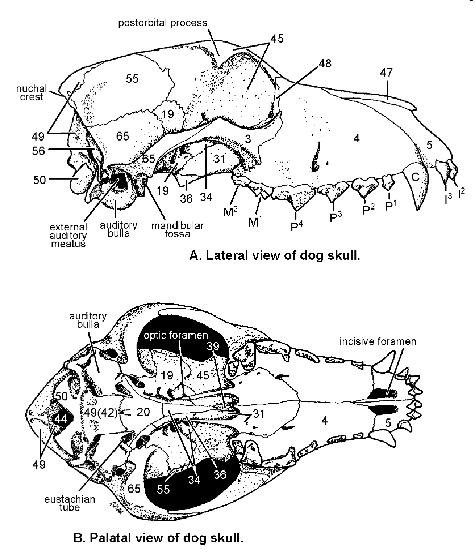
Auditory bulla, as incus and malleus
Stapes
Quadrate and articular in mammalian jaw
What do they articulate with
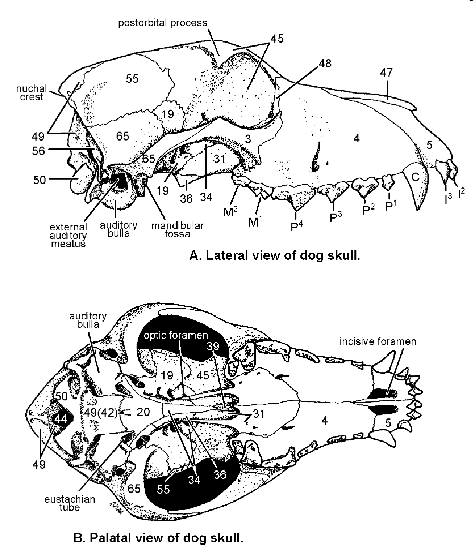
Postorbital process
Arches over orbit protecting the eye
Postorbital par is reduced to this in mammals and what it does
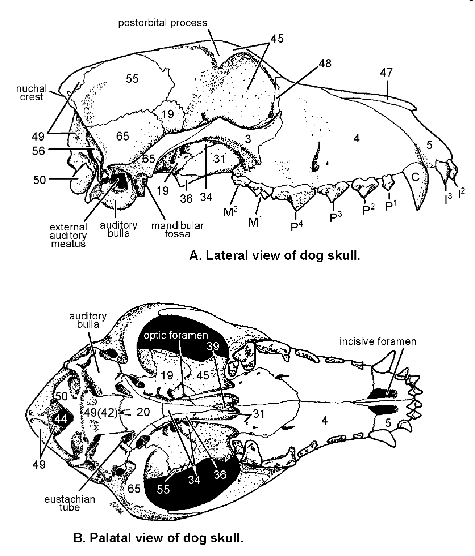
Premaxilla, b/w nasal (47) and maxilla (4)
5 and it’s flange between 47 and 4
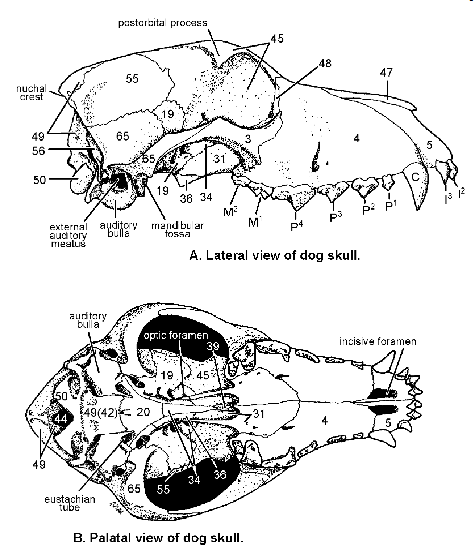
Connects mouth and vomeronasal organ for sensory information, hence why many animals open their mouth to smell better
Incisive foramen function
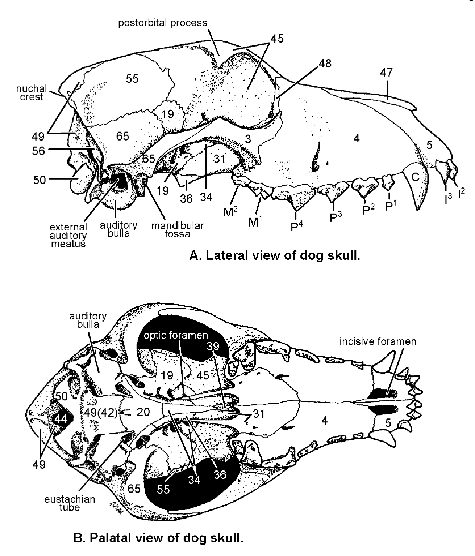
Palatine, flange on each forms anterolateral wall of pterygoid fossa, they articulate with vomer and presphenoid
A caudal extension of the nasal cavity
31, function, articulation
Pterygoid fossa def
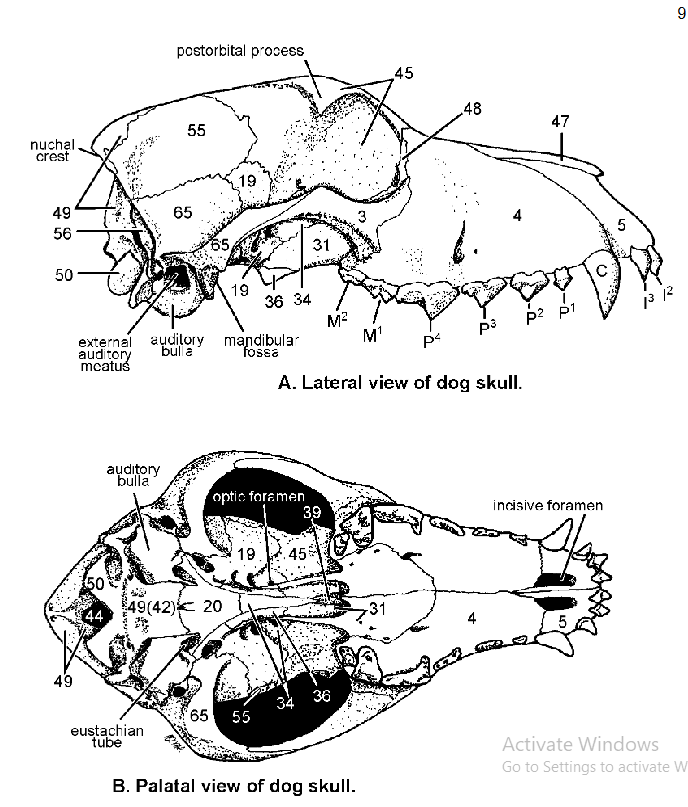
Vertical flange forming caudal wall of pterygoid fossa
Reduced pterygoid function in mammals
Vomer (39) separates halves of nasal cavity
Basisphenoid (20), extensions articulate w/ anterior edge of auditory bulla. That forms a tube for equalizing air pressure
39 function
20 function
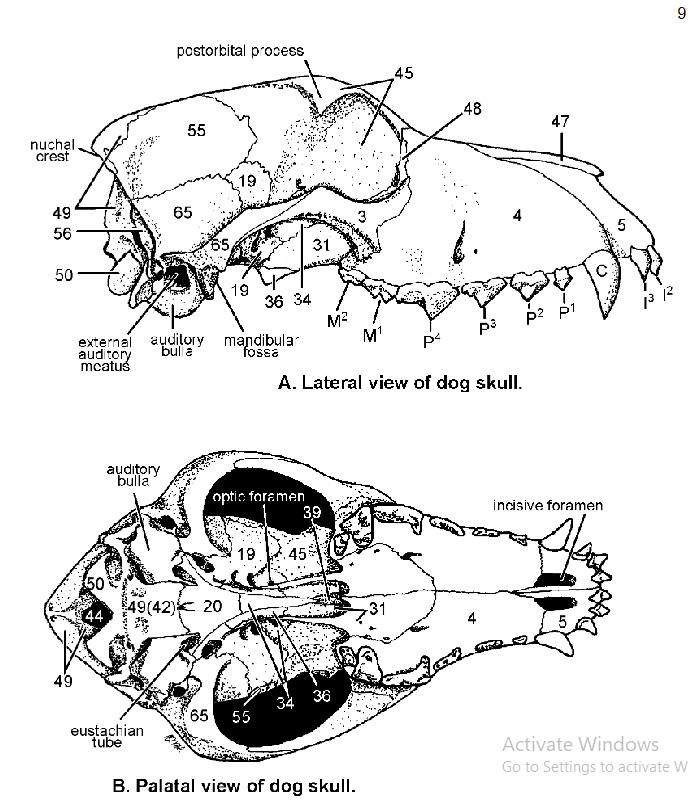
Squamosal (65) forms lower quadrant of braincase, contributes to zygomatic arch (cheek bone)
Jugal (3) forms anterior half of zygomatic arch
Lacrimal (48)
65, what it forms, contributes to, alternative name of what it contributes to
3, what it forms
48 within the orbit
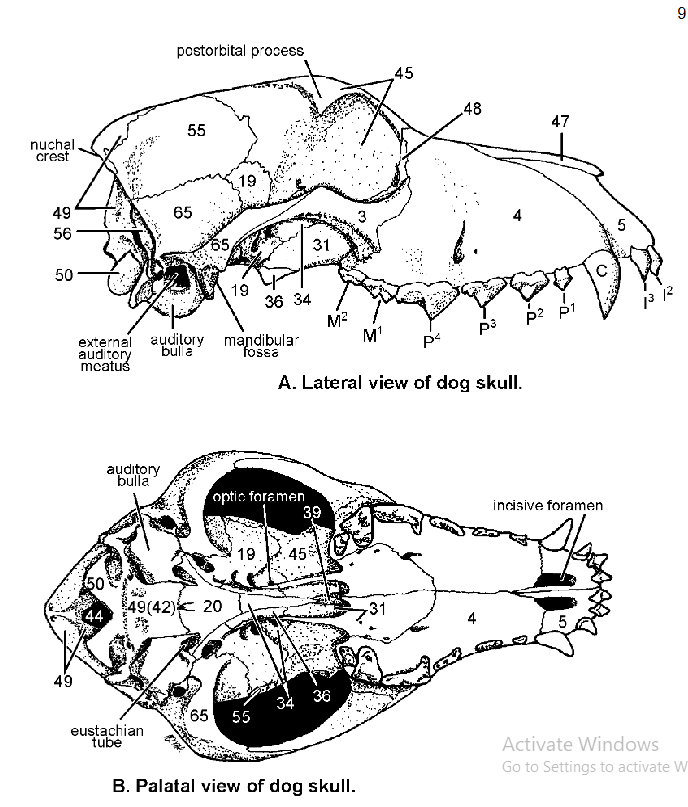
Dorsal half by frontal (45)
On top, postorbital process as remnant of postorbital bar
What the orbit is formed by
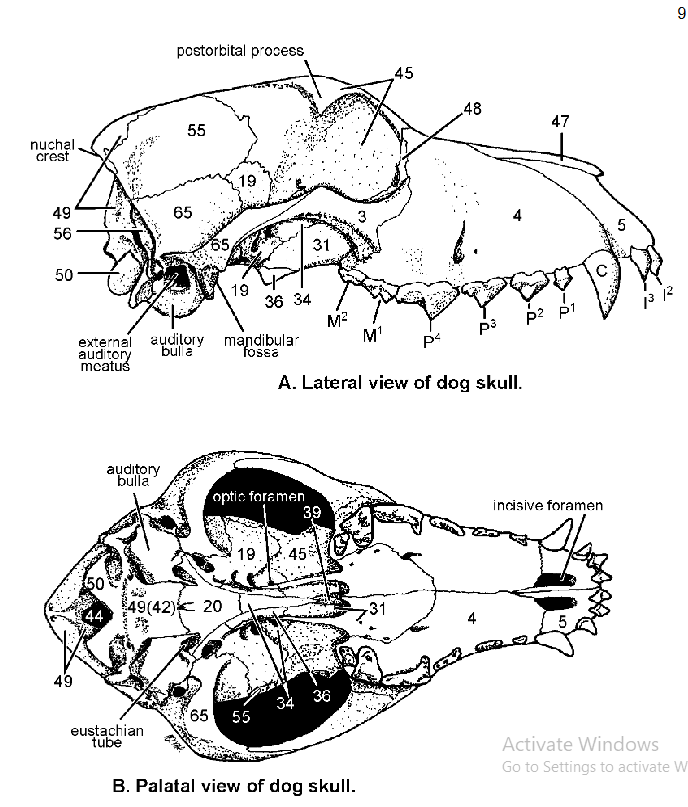
Dentary
Coronoid processes for temporalis muscle attachment
Lower jaw one bone all of it mammals
It’s flanges and function of them
Brachium = Humerus
Antebrachium = Radius and ulna
Manus = Carpals (wrist), metacarpals (palm), phalanges (digits)
Forelimb divisions and coinciding bone
Thigh = Femur
Shank = Tibia and fibula (shin)
Pes = Tarsals (ankle), metatarsals (foot), phalanges (toes)
Hindlimb divisions and coinciding bone
Masseter, Zygomatic arch to mandible, adducts mandible
88 origin insertion function
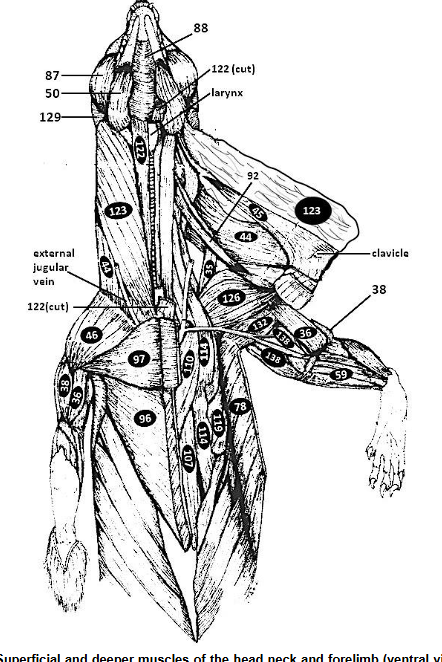
Temporalis, side of skull to coronoid process (of dentary)
129 origin insertion function
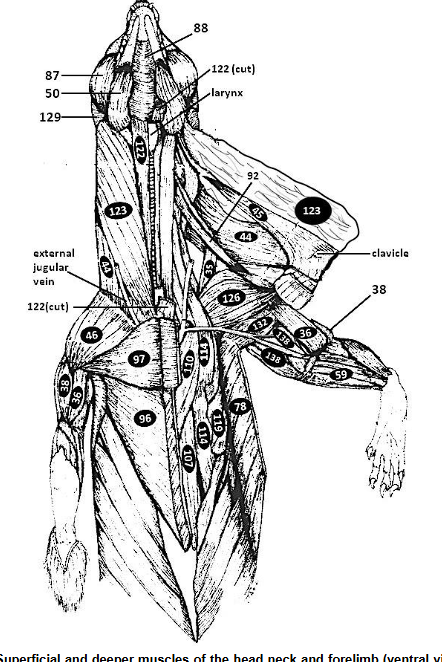
Sternomastoideus, sternum (cranial), mastoid region of skull, depress or rotate head
123 insertion origin function
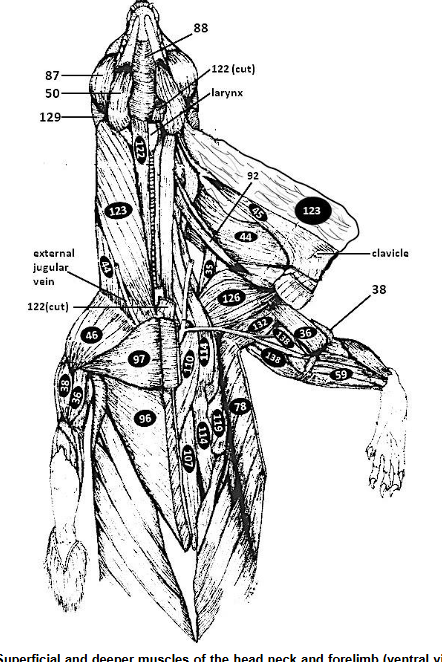
Cleidomastoideus, na, flexes neck
45
